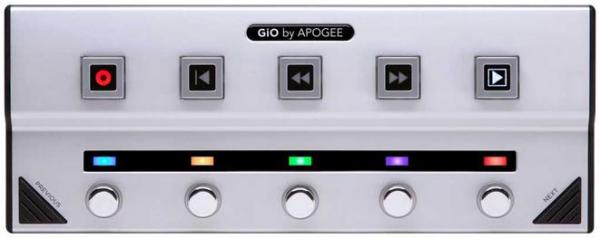

If you want to record at high quality, you cannot use more than one input and one output and stuff like that. It has decent latency and sound quality is ok. It has some good things, like Phantom power and stuff like that which will allow you to record more things. You have to unplug it (or power it off) every now and then (especially if you slept your computer with the device connected).

It works as advertised but, it has some details that I don't like. I have plenty of experience with M-Audio Fast Track Pro and Rig Kontrol. This is a very "detailed" subject, because different people will list different opinions at what good is. There's no mic preamp on it though, so instrument level signals only. Same great converters, but add in DAW controls that you can operate with your feet so you can punch in/out and track without taking your hands off your guitar. If you have no need for the microphone inputs of the above products and don't mind a larger, floor based form factor, the GiO is a pretty cool option. That's very, very minor, but it would have been nice to do all my interfacing with one box. I've been meaning to pick up a third party breakout box that has balanced, isolated speaker outs. The to-speaker outputs are unbalanced and I get some hum on them.The breakout cable ruins some of the elegance.My only gripes with the Duet, and these are minor are: Good ergonomics without a lot of clutter. And switchable 1/4" inputs that can be set to high impedance inputs so you can plug your guitar directly in to the unit.Īnd the design is modern and integrates nicely in to an Apple environment. They have XLR inputs that can take a mic or line level signal. Every bit as good as the Rosetta-level stuff. The converters on the low-end Apogee gear are pristine sounding. I can't recall the last time I had to fight with drivers or worry about crashes while I was working. They are excellent sounding, firewire-based interfaces that have rock solid drivers. I've been an Apogee user for a while now.


 0 kommentar(er)
0 kommentar(er)
